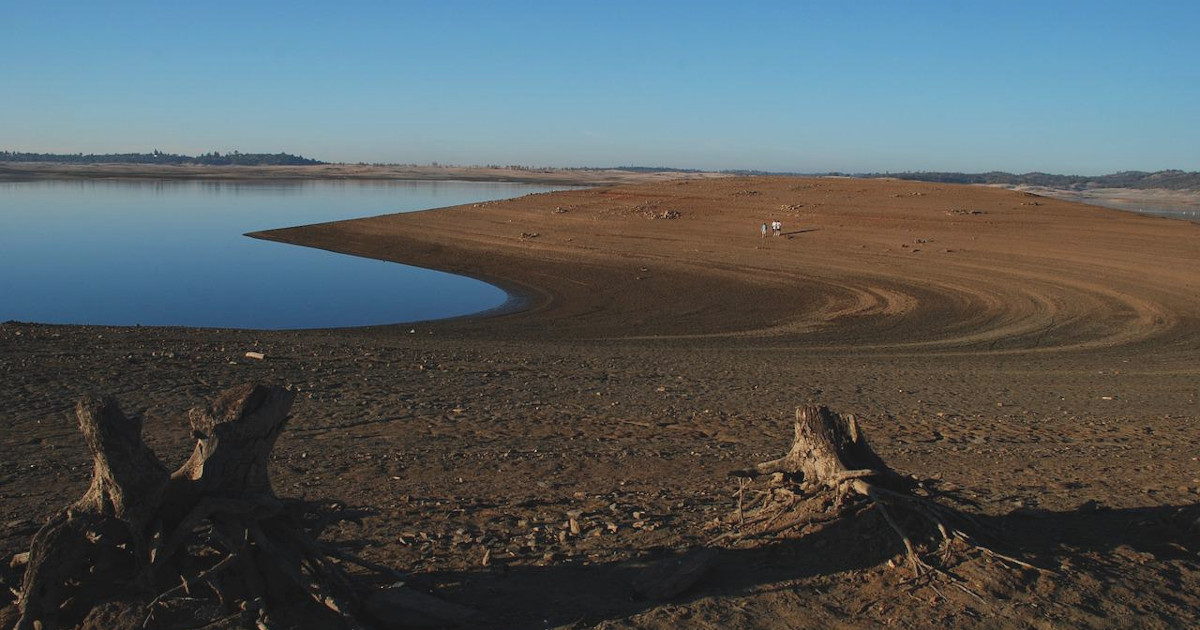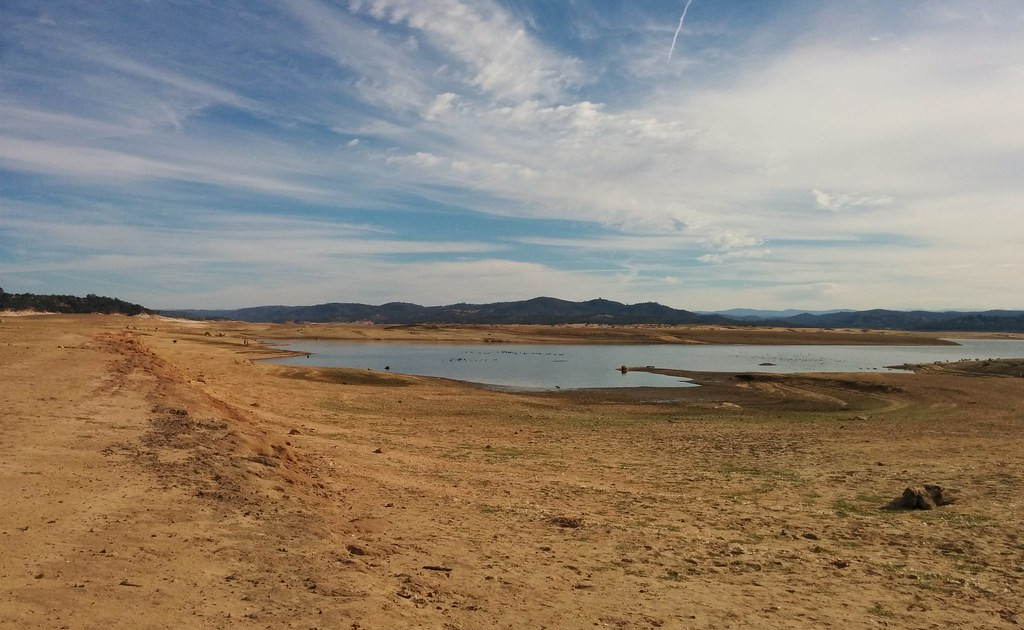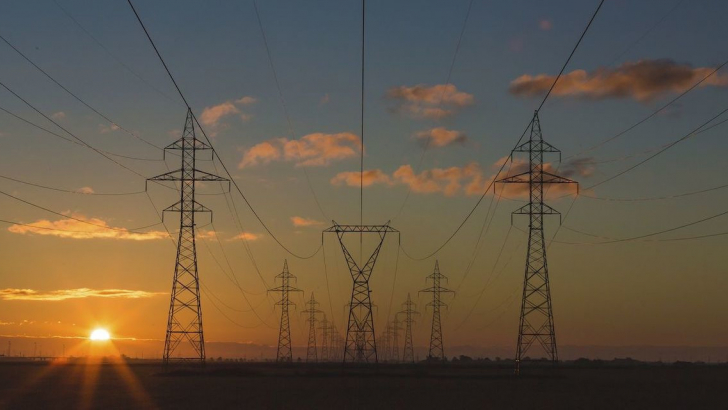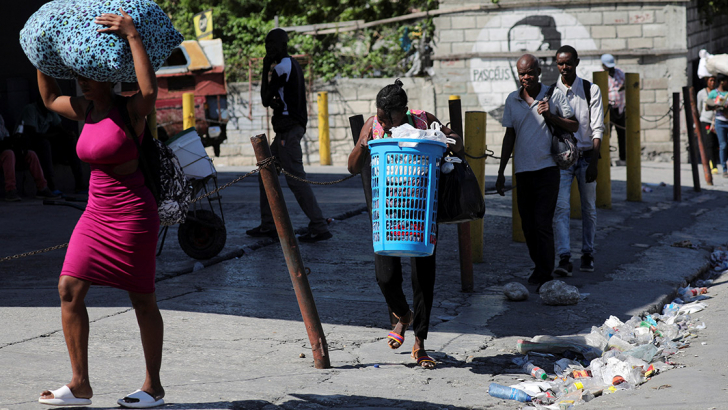
The increasing risks associated with climate change have already negatively impacted the well-being of North American populations and threaten natural and human systems, on which those populations depend. The IPCC (Intergovernmental Panel on Climate Change) has identified some elements that impair the fight against climate change in North America. These include the intensification of storms hitting the continent, the problems caused by droughts particularly affecting the West, and misinformation on climate issues that exacerbates polarisation and hinders adaptation policies.
Even if global warming was limited to 1.5°C, human lives, security, and living conditions in North America, especially in coastal areas, will be at risk from rising sea levels, severe storms, and hurricanes.
Ecosystems
Air, water, ocean, and soil temperatures are already on the rise, reshaping ecosystems and contributing to the redistribution of plants, fish, birds, mammals, and other wildlife species, also increasing their mortality rates. Climate-induced changes are poarticularly pronounced in Arctic ecosystems.
Intensifying impacts on marine, freshwater, and terrestrial ecosystems will alter ecological processes and amplify anthropogenic threats to habitats and protected species.
Health
Climate change has already impacted human health and well-being in North America. High temperatures have increased mortality rates and the spread of diseases. The severity of these impacts depends on factors such as age, gender, location, and socioeconomic status.
Projected health risks are expected to rise within this century across all emission scenarios, but the severity of impacts will depend on the implementation and effectiveness of adaptation strategies.
Economic activities
Extreme weather events and climate risks are affecting multiple economic activities in North America, disrupting supply and trade systems. Following current economic and consumption trends, the impacts of climate change will cause significant damage to markets throughout North America.
Food
Redistribution and decline of food production in North America due to climate change pose a risk to food security. Agriculture, fishing, essential crops, and likely even livestock will experience increased productivity losses.
Water
High rates of exploitation of limited water resources, especially in the western United States and northern Mexico, are deteriorating water systems and have already elevated the risk of water security and its subsequent impacts.
More intense droughts and early depletion of water resources, caused by reduced snow accumulation, will decrease water availability during peak summer demand, especially in heavily irrigated agricultural regions. This will lead to economic losses and an increasing pressure on limited underground water resources, which will be used as a substitute for surface water that will be less available.
Cities and settlements
North American cities and settlements have been increasingly hit by extreme weather events and climate-related risks, causing cascading effects such as damage to infrastructure, loss of services and economic activities, damage to the cultural heritage, and deterioration of liveability. These impacts are particularly felt among indigenous populations, whose cultures, identities, livelihoods, and well-beings are closely tied to environmental health.
Coastal and riverine floodings, as well as those affecting ecosystems and communities, will become a primary risk for urban centres, forcing people to relocate, compromising economic activity, disrupting transport systems and damaging trade infrastructure. large wildfires will endanger lives, homes, physical and mental health, infrastructure, and economic activities, contributing to air pollution and risking contamination of municipal water supplies, with multiple implications for human health.

Drought in Folsom Lake, California
Obstacles to adaptation
Despite the demonstrated human influence on climate change, misinformation and politicization of climate science have created polarization among the public and policymakers in North America, to the extent that they have limited actions to contrast climate change. Direct interests have spread rhetorical strategies and misinformation that undermine the reception of climate science and make people ignore risks and urgency. Distorted public perceptions and polarization are delaying the adoption and implementation of urgent plans.
Equitable and effective policies are hindered by fragmented responsibilities and inadequate disaster management. Another issue is the lack of cooperation between levels of action in governmental and local policies. Improved coordination and sufficient financial resources are necessary.
Adaptation options
Equitable, inclusive, and participatory approaches are essential for reducing climate risks, and adaptation policies need to focus on sustainable land use and nature-based solutions. There should be attention and support for the self-determination of Indigenous peoples, their rights, and their knowledge, which can help mitigate climate risks.
If global warming is not limited to 1.5°C, climate risks in North America will intensify rapidly by mid-century. Adaptation actions, implemented swiftly and in a coordinated manner, alongside emission reduction efforts, can significantly contribute to maintaining a good quality of life in North America, protecting biodiversity, and sustaining economic productivity.
This article was translated into English by Sofia Belardinelli. The original version of this article is available here.
ALSO READ:
- IPCC: Nearly direct correlation between emissions and global warming
- IPCC: Impacts of climate change are not equal for everyone
- IPCC: The impacts of climate change on Africa
- IPCC: The impacts of climate change on Europe
- IPCC: The impact of climate change on small islands
- IPCC: The impacts of climate change on Asia
- IPCC: The impacts of climate change on Oceania
- IPCC: The impacts of climate change on Central and South America
- IPCC: The impacts of climate change on North America
- IPCC: The impacts of climate change on human settlements
- IPCC Synthesis Report: every fraction of a degree matters




